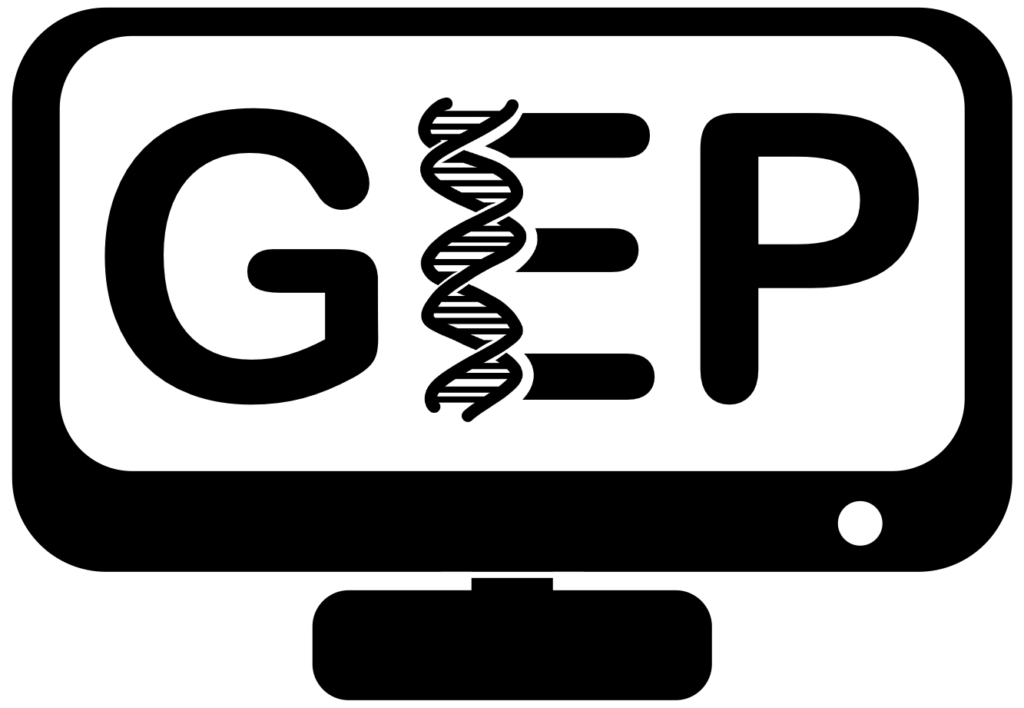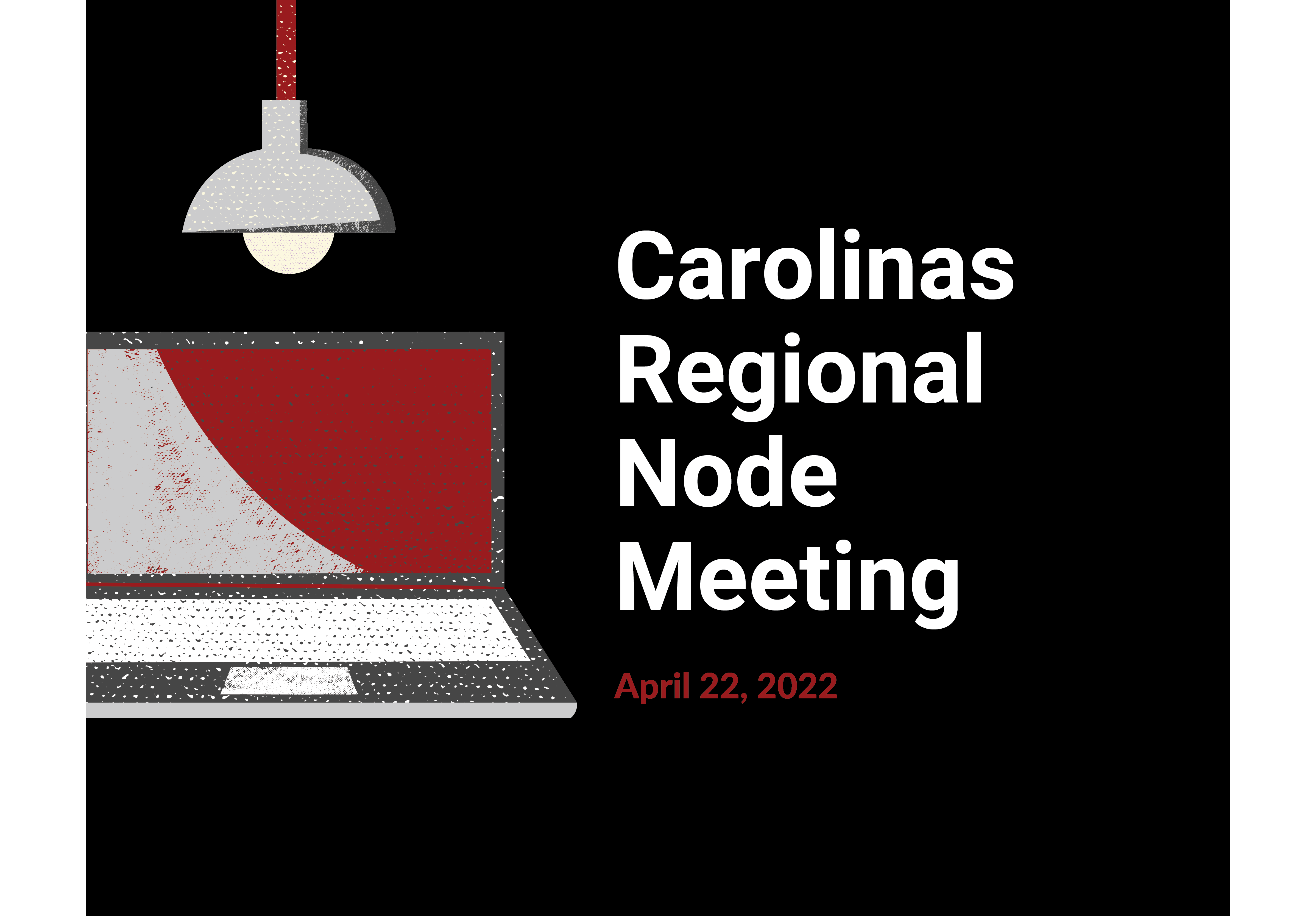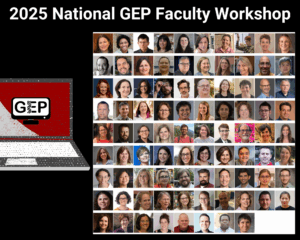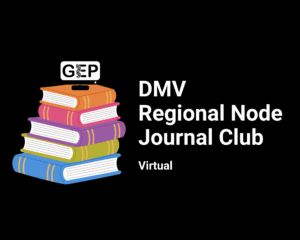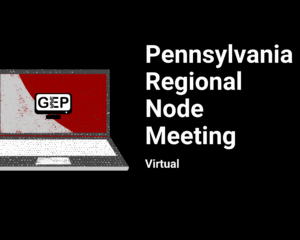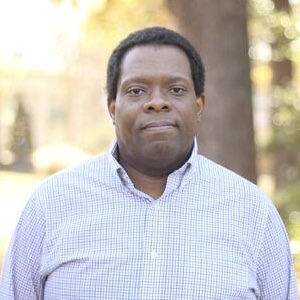The Carolinas Regional Node Meeting was held virtually on Friday, April 22, 2022, 9:00am-12:15pm (ET). The meeting kicked off with brief welcome remarks by Jeff French, a Node member from North Greenville University, SC, who also introduced our keynote speaker. Nate Mortimer from Illinois State University, who leads the Parasitoid Wasps Project in the GEP, gave an inspiring talk on “Invasion of the Body Snatchers: Parasitoid Wasps of Drosophila.” We had a break between 9:50-10am to allow for preparation for students’ presentations. Right before diving on these, Marisol Santisteban from UNC at Pembroke, current Carolinas Node leader, gave a brief introduction to the GEP and acquainted attendees with the organization: membership, different modes of participation, and the projects that are currently pursued.
Engaging presentations by five students from South Wesleyan University (Michelle Eller, advisor) and Appalachian State University (Clare Scott Chialvo, advisor) took us into the intricacies of their projects in the Insulin Signaling Pathways Project and in an emerging new project on detoxification genes, and the challenges of manual annotation of species closely related to D. melanogaster, such as D. immigrants. After a break from 11-11:15, the last hour of the day was a professional development event geared towards students. The “Careers in Genomics” panel hosted 5 experts from different Genomics fields, with different levels of education (not all PhDs), and not all from academia. All panelists were female and from diverse backgrounds. Four of the five panelists also work in North Carolina which shows our Carolinas students that there is a future for them in this field that’s also close to home. Sabrina Powell, Education Program Director of the Precision Medicine in Health Care in the Department of Genetics at UNC Chapel Hill School of Medicine generously helped assemble this extraordinary array of experts and prepared a fictional but realistic scenario about a 3-year-old boy diagnosed with autism, who is referred to the UNC Genetics Clinic for further testing. The testing reveals two specific variants in Mateo’s exome, one which is known to cause a specific subtype of autism and another which is associated with a high risk of adult-onset dementia. There was a role for professionals at each of our panelists’ positions:
- Kate Foreman, CGC, Genetic Counselor (University of North Carolina at Chapel Hill);
- Meghan Halley, PhD, MPH, Senior Research Scholar (Center for Biomedical Ethics, Stanford University);
- Julie Horvath, PhD, Head of Genomics & Microbiology Research Lab (NC Museum of Natural Sciences) and Research Associate Professor, Biological and Biomedical Sciences (NC Central University);
- Halina Krzystek, Bioinformaticist, Bioinformatics Data Services, Q-Squared Solutions; and
- Janae Simons, Bioinformatics Software Developer (Lineberger Comprehensive Cancer Center, University of North Carolina at Chapel Hill).
The meeting was attended by 34 people, of which 8 were undergraduate students, and three Community College instructors, two if which had expressed interest in knowing more about GEP and had been invited to New Member Trainings.
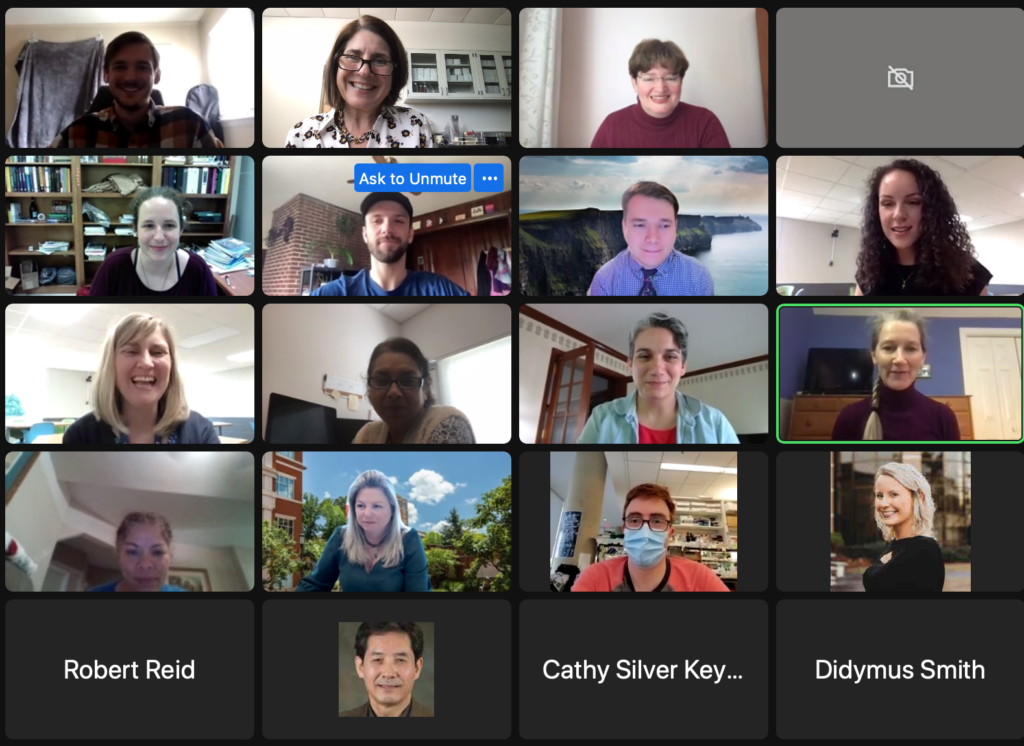
What worked well for your event that might help others plan similar events?
Using the opportunity that came with the “online” format we were able to host an outstanding keynote speaker (our very own Nate Mortimer from Illinois State University) and panel of experts in different fields of genomics for our “Careers in Genomics” panel; many were in North Carolina, but we had a person from Stanford. It would not have been possible to assemble this array of experts if it had been an in-person event. I would recommend some “professional development” event for students, like the “Careers in Genomics” panel that we had. We hosted individuals in different fields, with different education degrees (not all PhDs), and not all from academia. I believe the students really found this session interesting and useful. Making a program and emailing it to all participants was a plus and we also emailed certificates to the student presenters which is a nice touch of appreciation.
What lessons were learned from challenges in the planning or execution of the event that might be helpful to others?
It is hard to come up with the “perfect” date. We considered weekday vs. weekend, all day vs. half a day, mid semester vs. late in the semester. We finally settled on a Friday because they tend to be lighter days for students, and only half a day (morning). We did it towards the end of the semester, so students would have made enough progress in their projects to present. Considering that Node meetings will be in-person in the future, I would recommend a weekend, maybe start on Friday evening with posters and maybe the keynote speaker and then talks on Saturday morning and some professional development event. Some people may choose to attend only one day but they won’t be a full day. Or maybe make it a whole day event on Saturday. Keeping some form of hybrid might be useful, especially for the keynote speaker or panels, because that allows inviting speakers that are not geographically close to the Node.
As far as the execution, it is still hard to keep everyone engaged and have them turn on their cameras and ask questions. So as much as possible, I would recommend holding the student presentations in-person and if online, encourage folks to have their cameras on, and incentivize asking question with some form of reward. We provided a short bio of the panelist in the program that was emailed to the registrants the night before. If possible, do that earlier, so people may think of some questions to ask ahead, and openly ask them to try to do so.
Some students reported not receiving a link for the meeting, but they registered only minutes before the start of the meeting. If you plan to leave the registration open till the very start of the meeting, make sure someone in the Node does a last sweep. Ask the GEP staff to give access to registration to someone in the Node.
Keep the GEP staff in the loop for everything planning, they are incredible resourceful, helpful and efficient!
